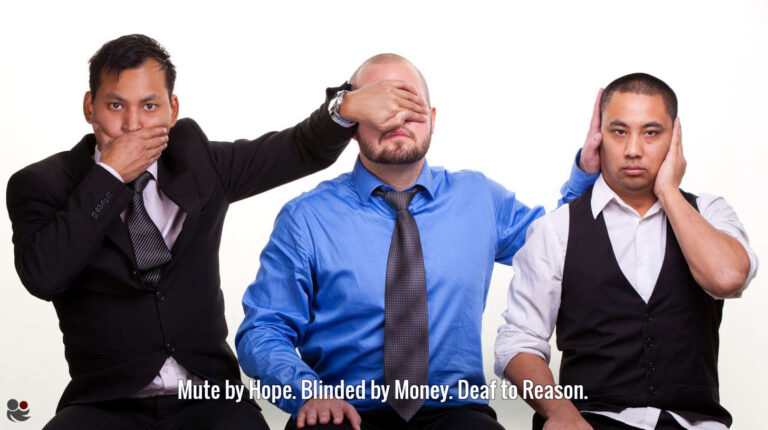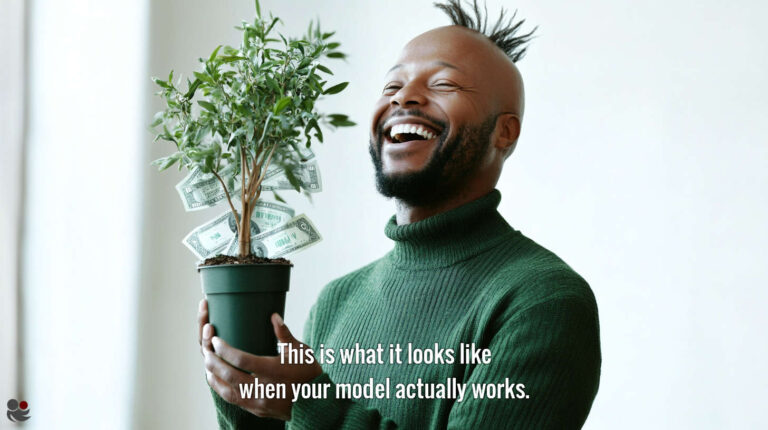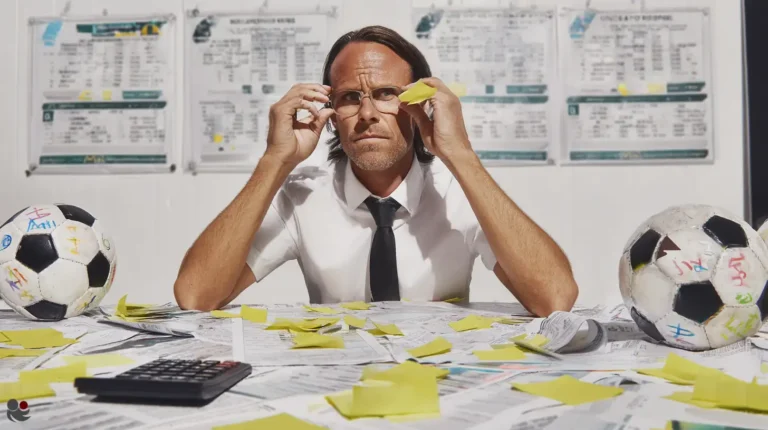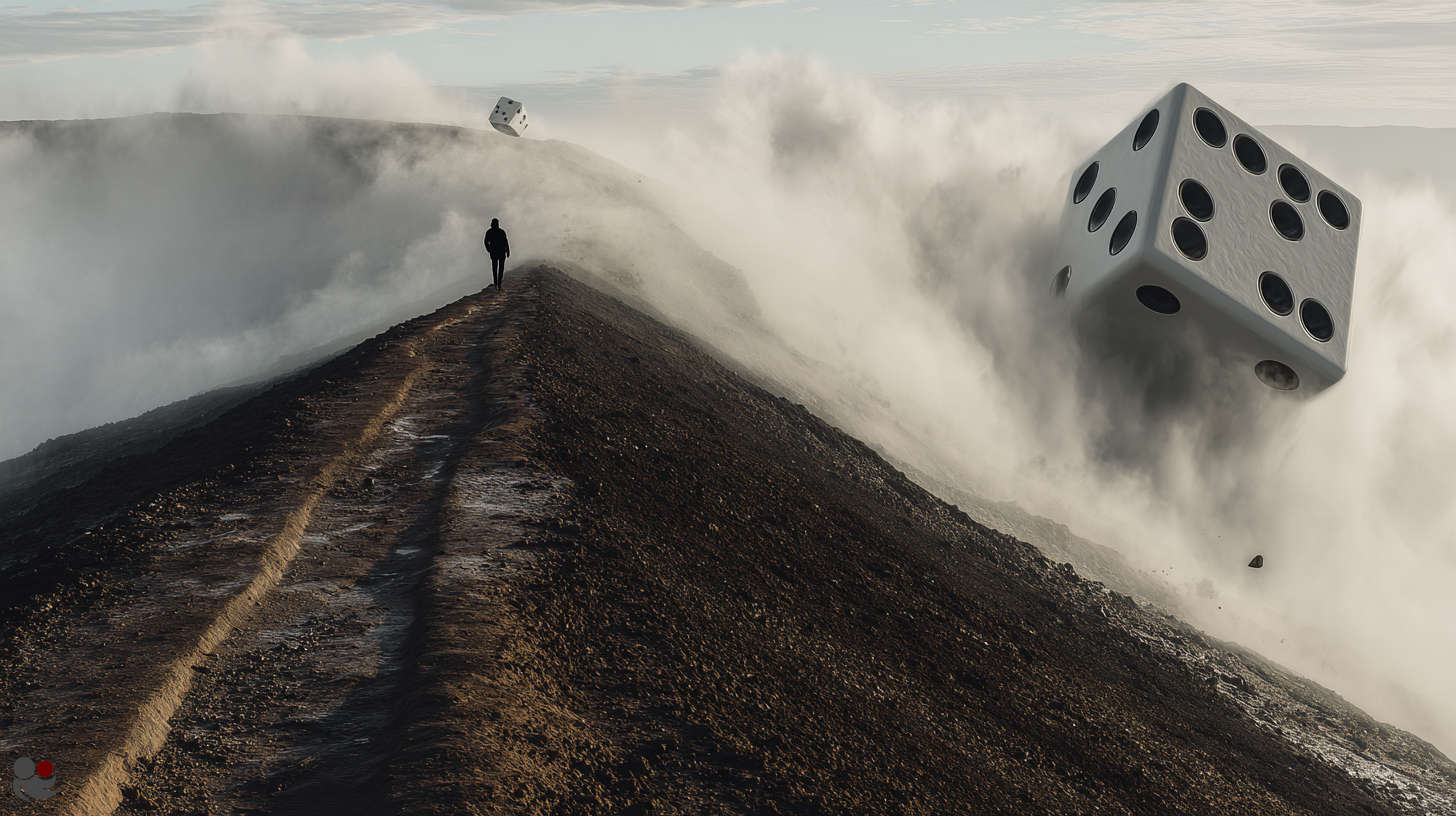
You can plan everything right - but the system rolls the dice.
Chance vs probability isn’t just an academic distinction. Sometimes, it’s the line between survival and tragedy – as this case study reveals.
German biathlete Laura Dahlmeier died in a well-executed, cautious descent from Laila Peak – a tragedy with no error, just exposure to risk.
Her story becomes a brutal case study: you can do everything right and still lose.
The Myth of Control
Failure Without Error
The Survivor Problem
Uncomfortable Questions
Chance vs Probability
What is ‘Luck’?
What’s Left if Probability doesn’t explain Chance?
The shocking and tragic death of Laura Dahlmeier occurred during a controlled, well-prepared descent from Laila Peak (Pakistan). She had done everything right:
- Turned back before reaching the summit due to deteriorating weather
- Was properly equipped and experienced
- Acted with caution, not recklessness
This wasn’t an act of hubris. She didn’t push for the summit. She didn’t gamble with conditions. She did what every textbook on mountain risk management says you should do: when in doubt, turn around.
And yet, she was killed.
Not by fatigue. Not by exposure. Not by some obvious miscalculation. A stone fell from above and struck her on her head. Statistically possible. Mechanically unremarkable. Completely lethal.
It’s a clean case study in what system failure looks like without operator error.
In technical systems, operator error means the failure was caused by the person using the system – through a mistake, poor judgement, or incorrect execution. It implies that the system itself was functional.
In Laura’s case, there was no such error. The system – the mountain – killed her despite correct operation.
This article dives into the tension between chance vs probability, and what happens when doing everything “right” still may lead to ruin.
I Can Do Everything Right and Still Fail? ⤴️
Yes. Not only can you – in probabilistic systems with hard boundaries like time, exposure, or capital, someone always will.
Even the Italian climber and explorer Reinhold Messner, who has survived more mountains than most people will ever see in photos, put it plainly:
👉 source
You don’t need to make a mistake. You don’t need to chase glory. You just need to be in the wrong place at the right time.
This applies to climbers. And it applies to bettors.
Because in both cases, the system doesn’t respond to your effort. It just plays out. Indifferent. Automatic. Statistically loaded.
Laura’s death is a tremendous loss. But it’s also a brutal data point – a demonstration that systems governed by chance don’t reward virtue. They don’t punish recklessness either. They simply respond to inputs, time, and exposure.
The Myth of Control ⤴️
The world is full of gamblers who lost their shirts through overconfidence, impulse, or ignorance. But this case study isn’t about them.
It’s about the one who did everything right:
- Builds models, tests them over years
- Bets only when the edge is clear
- Risks 1–2% per bet
- Keeps logs, reviews outcomes, resists emotion
This is the kind of bettor you want to believe is safe. The kind who understands variance, who doesn’t need to win today, who knows that profit is a long-term artefact of good decisions.
And yet: even this highly organised and disciplined player can go bust.
Why? Because probability does not smooth itself to match your plans. Even if your strategy has a true positive expectation, the sequence of outcomes is unpredictable. You may lose 20 bets in a row despite every single one being a “value bet.”
Like Laura, you may do everything by the book and still get hit by something the book can’t prevent.
The idea that systems can eliminate risk – that discipline and knowledge can shield you from ruin – is a myth. Not because those things aren’t useful. But because the environment doesn’t care.
The mountain didn’t check Laura’s credentials. The market doesn’t grade your spreadsheet. There is no safety in logic and probability alone.
What exists instead is exposure – and chance.
Even when everything seems predictable – favourites lose, and logic fails. That’s not a mistake. It’s variance and chance.
👉 Heart Beats Brain: Why Forecasting Individual Match Results Fails
A real case from the Premier League that proves:
Correct models can still feel wrong in the moment.
Failure Without Error ⤴️
Laura wore a helmet. It didn’t matter. A rock hit at the wrong angle, with enough force, and that was the end.
Protection has limits. Not metaphorically – physically. Beyond a certain point, no equipment works. Helmets crack. Ropes snap. Systems fail.
Same in betting. You can manage your bankroll. You can follow strict staking rules. You can filter bets down to pure mathematical value. None of that removes risk. It only resizes it.
Your staking system is a helmet. Your strategy is a helmet. Your discipline too. But none of them make you invincible. They delay the impact, cushion it, sometimes deflect it. But eventually, one stone gets through.
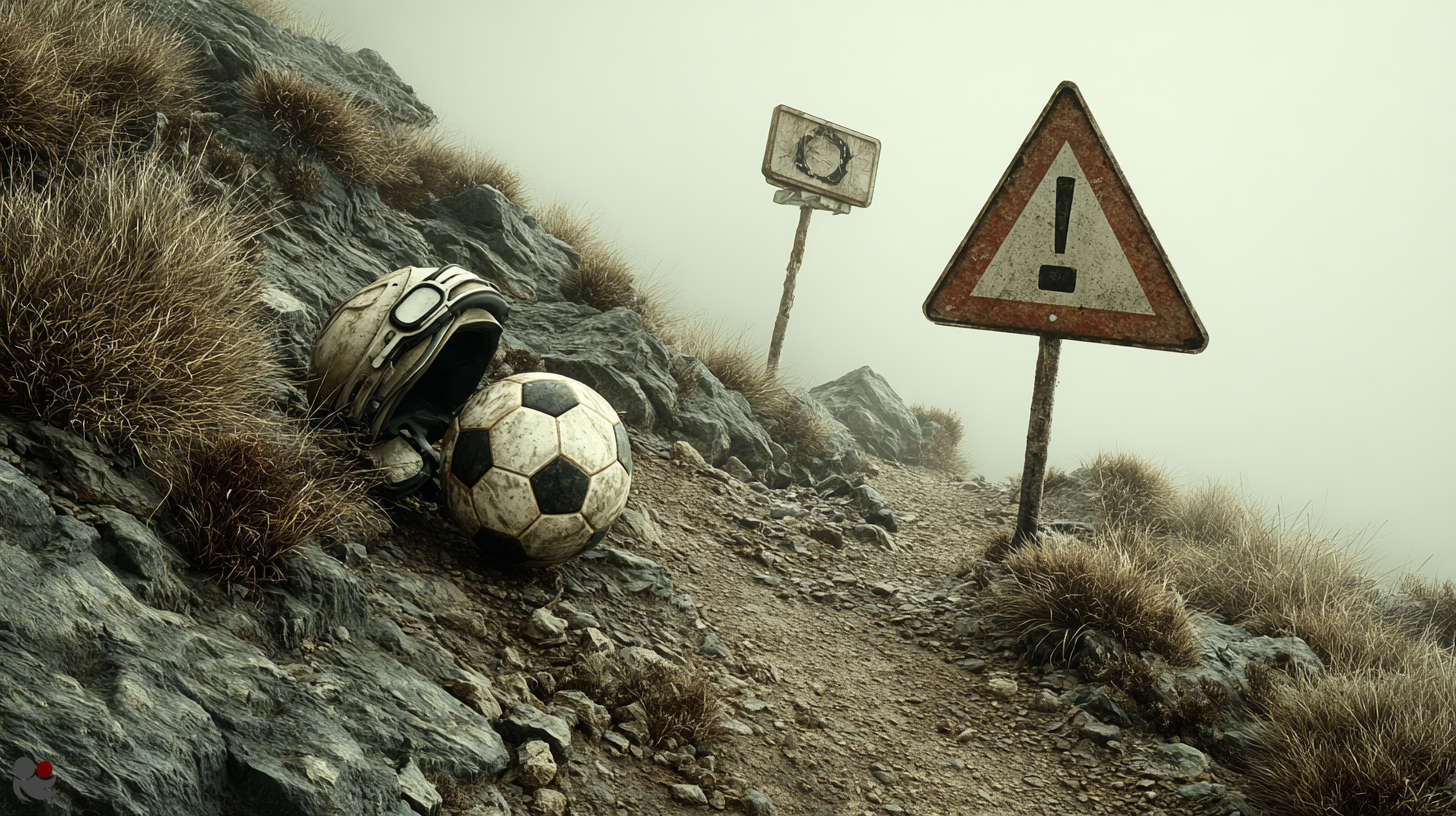
The Survivor Problem ⤴️
Reinhold Messner survived.
It just proves he didn’t get hit.
He survived his climbing career. Laura didn’t. That’s not a lesson. It’s a distribution.
One outcome gets remembered. The other gets buried.
This is survivorship bias: the illusion that success is proof of correctness. It isn’t. It’s often just evidence of who didn’t get hit.
In betting, you see the survivors. The tipster still posting. The thread showing a ten-year yield. The guy with the podcast.
You don’t see the ones who followed the same rules, made the same bets, and vanished. Not because they were worse – but because their stone arrived earlier.
You see Laura’s story now – all over the papers – but not next year anymore, not all across the newspapers like now.
Probability ensures that some players with edge will lose everything before variance swings back. Just as some climbers die on well-marked routes.
It’s one of the most overlooked truths: chance vs probability isn’t just maths – it’s personal risk wrapped in cold distributions.
Uncomfortable Questions ⤴️
Let’s ask a few real questions now – the ones AI models, theories, and even philosophers flinch from.
- Why do some people succeed and others don’t?
- Why do some age gracefully and others collapse?
- Is it really just probability?
- Why must some suffer while others skate by untouched?
Let’s sit with this – no narrative arc, no neat wrap-up.
- Success is not proof of strategy.
It might be. Or it might be a favourable run. Or access to better information. Or simply the absence of collapse. “Still standing” is not the same as “stood well.” - Graceful ageing is the same.
Some never smoked, ran every day, and still get cancer at 50. Others drank whisky and chain-smoked to 90. The distribution is real. So is chaos. So is damage we can’t model – like early-life trauma, environment, unmeasurable stressors. - Probability can explain the structure – but not the meaning of individual outcomes.
Yes, you can model expected variance. You can simulate 1,000 bettors using the same system and watch 120 of them go bust purely by order of outcomes. But when you zoom in on any one person – their suffering, their loss – probability has nothing to say. - Suffering isn’t always earned.
There is no system that distributes it fairly. No equation that explains why one person’s child dies and another’s doesn’t. The world is not a karmic ledger.
Chance vs Probability ⤴️
Probability describes the distribution.
It tells you how often outcomes occur across many trials, over time, within systems.
But luck – or chance – isn’t a distribution.
It’s a single outcome landing on a single person at a single moment. Accidentally.
Probability says:
Chance says:
Probability is statistical.
Chance (Luck) feels personal.
What is ‘Luck’? ⤴️
The Scientific View:
Modern physics doesn’t recognise “luck” as a force or law. It’s a placeholder word – used for events we can’t predict or explain. In science, things are either:
- Deterministic (predictable with full information), or
- Probabilistic (governed by distributions, randomness, or uncertainty)
“Luck” isn’t in the equations. But then again – neither is consciousness, and we still use it every day.
🔍 The Philosophical Implication of ‘Luck’
This reframes “luck” as undetected structure.
That is: what looks like randomness now may turn out to be governed by unknown variables – just like lightning once seemed divine.
It’s not mystical. It’s just epistemic humility: we don’t know everything yet.
- The bettor who always seems lucky? Maybe they’re attuned to patterns others miss.
- The climber who avoids every falling rock? Maybe they subconsciously read tiny environmental cues.
- The survivor? Maybe there’s more going on – biologically, environmentally, cosmically – than statistics currently capture.
Soccerwidow doesn’t deny probability – indeed we teach probability all over the blog – but we must admit that we too don’t know the answer to what we call “luck”.
What’s Left if Probability doesn’t explain Chance? ⤴️
Nothing. 🤷 That’s the point. Stop trying to patch the hole. The need to find meaning in chance is itself the delusion.
There is no closure. There’s only the outcome that landed on you.
Maybe this isn’t about “beating the system” – maybe it’s about knowing when to step away, and when to keep going.
You don’t control the outcome. But you choose how long to stay exposed.
This article examined what happens when probability meets the life of one person – a climber, a bettor, a human exposed to realities.
For the system, individual chances are factored in.
For the individual, a chance is a stroke of fate.
👉 Are You the Architect of Your own Fortune, or Misfortune? – a thought-provoking piece on how statistical thinking meets self-responsibility.
Laura’s death is undoubtedly a great tragedy – but for all of us still standing, her death should serve as a reminder: even when the odds are in our favour, life makes no promises.
But FEAR might hold you back from living.

